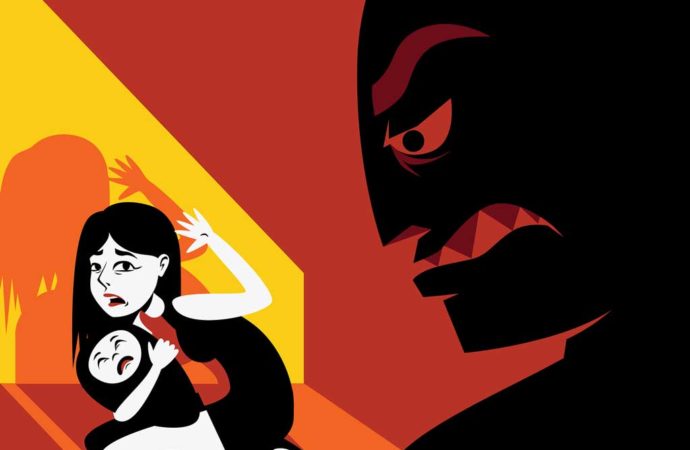Why is violence against women still so prevalent?
Iffat’s (not her real name) husband Likhon (not his real name) beats her up on a regular basis; when he beats her up, she bleeds. This has been going on for more than 15 years now. Once, after hearing his daughter was being beaten up by Iffat’s husband, Iffat’s father went to their residence with the police.
After that episode, the husband stopped beating her up for a few months. But after a while, it started again.
Iffat is a pretty woman with natural bluish eyes and blondish hair. She was a single mother with a daughter before she met Likhon. The man was apparently mesmerised by Iffat’s beauty and became desperate to marry her.
However, once they were married, he changed. She used to work in a foreign mission, but Likhon forced her to quit her job. He doesn’t even allow her to have an email address or a social media account. He wants her to remain inside the house all day, do the household chores, and look after the children.
There’s hardly any awareness campaign in the country. Recently, in December, a group of people had organised a cycle rally as their campaign for violence against women. Apart from that, I haven’t seen any campaign for a long time
Her parents and brothers wanted to take legal action against her husband and advised her to leave him if the beatings continued.
She, however, couldn’t muster the courage to leave him or file a case against him. She keeps hoping that some day her husband will come to his senses and stop beating her up. But nothing changes and the torture continues, and there seems to be no end in sight.
This is the story of, perhaps, millions of women and girls in Bangladesh.
Headlines in the newspapers such as “Man throws acid, burns wife in Dhaka,” “Man allegedly kills wife for Tk12,” and “Husband hurls boiling water on wife in Bogra” are everyday occurrences in this country. A report in December last year said that violence against women in Bangladesh has risen by 5%.
The interesting part of the entire picture regarding abhorrent violence against women is that there’s no activity for preventing such incidents. If I remember correctly, pro-women’s rights activists — both socially, nationally, as well as in the international level — in the early 90s, were quite vocal in terms of condemning violence against women.
There were various human rights organisations who were openly helping women in distress across the country. The media, especially the newspapers, would run daily special reports against women’s repression. The women themselves had a visible presence in our social life as well as in the media demanding safe homes for themselves.
I had once suggested to a business that they should teach martial arts in girls’ schools as part of their CSR program. The company initially wanted to but later on became scared of being victimised by the extremists.
They later gave up the idea of teaching self-defence to young girls.
Given the extent of torture that our women have to endure, would it be too much to teach them self-defence techniques?
There’s hardly any awareness campaign in the country. Recently, in December, a group of people had organised a cycle rally as their campaign for violence against women.
Apart from that, I haven’t seen any campaign for a long time. It’s the responsibility of our Women’s Affairs Ministry do to initiate this.
What are the NGOs doing now? They’re all busy promoting micro-credit across the country; they think if you make the women self-reliant, all problems related to repression will be solved.
But, no, they’re very much there. We need to resume the awareness campaigns.
We’ve just appointed our first ever female election commissioner.
We’ve had female judges, army personnel, and police officers. This is the land where females were at the top of the state affairs for more than two decades.
Why wouldn’t these persons be able to extend their support to this cause?
Why wouldn’t the political parties be able to work for violence against women?
There’s a government helpline called “National Helpline Centre for Violence against Women and Children” (http://nhc.gov.bd), but we don’t know how many women receive help through this site.
The site says they support women and children with regards to physical assault, sexual assault, burns, sexual harassment, violence in general.
Most of the examples that have been cited on this site are about preventing child marriage.
We’re doing so much to become a digital society.
But our women are suffering. How many of us know that this type of aid is rendered by the government? Why isn’t there any promotion of this platform? Why isn’t everybody making any sound against this scourge?
Source; Dhaka Tribune

